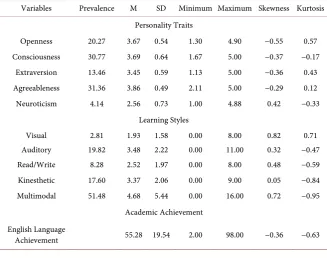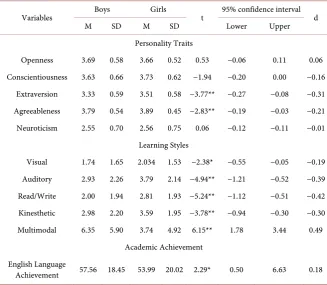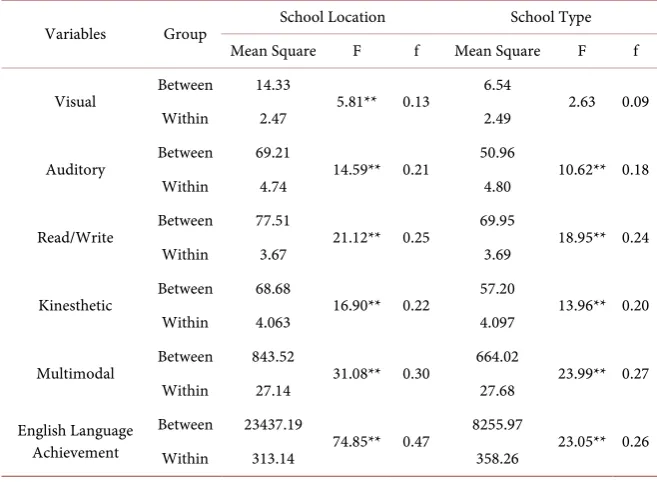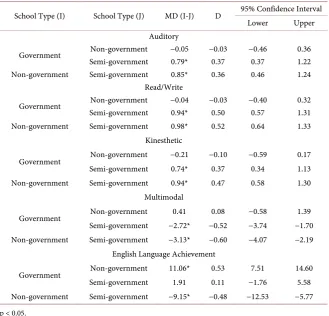Influence of Personality and Learning Styles in English Language Achievement
Full text
Figure




Related documents
That‟s great news; it means that you‟ll be able to use calibre no matter what computer you use and that if you use computers that use different operating systems they‟ll all
Evaluate student progress - (1) visits to clinical sites may be made early in the experience, near the end of the experience, or as requested by the student and/or preceptor
This paper has studied transmission scheduling problems for remote state estimation and control, where the sensor is equipped with energy harvesting capabilities, and transmission
Account Issued by: Mid America Bank & Trust Company Serviced by: Continental Finance Company.. Version: April
In this thesis, an iPhone is used in the initial user study and a Nokia n900 mobile phone is used for implementing and testing a gesture repertoire which could potentially be used as
For the second view, we cover the distributions in overall, important for all sorts of statistical techniques, but for the survival analysis we just interested in the following
Among 3789 CRC cases in the European Prospective Investigation into Cancer and Nutrition (EPIC) cohort, pre-diagnostic consumption of red meat, processed meat, poultry and dietary
Lastly, efficiency is a common criterion in both schools of thought, but one whose measurement is generally not done well, and where methodological development is lagging behind

